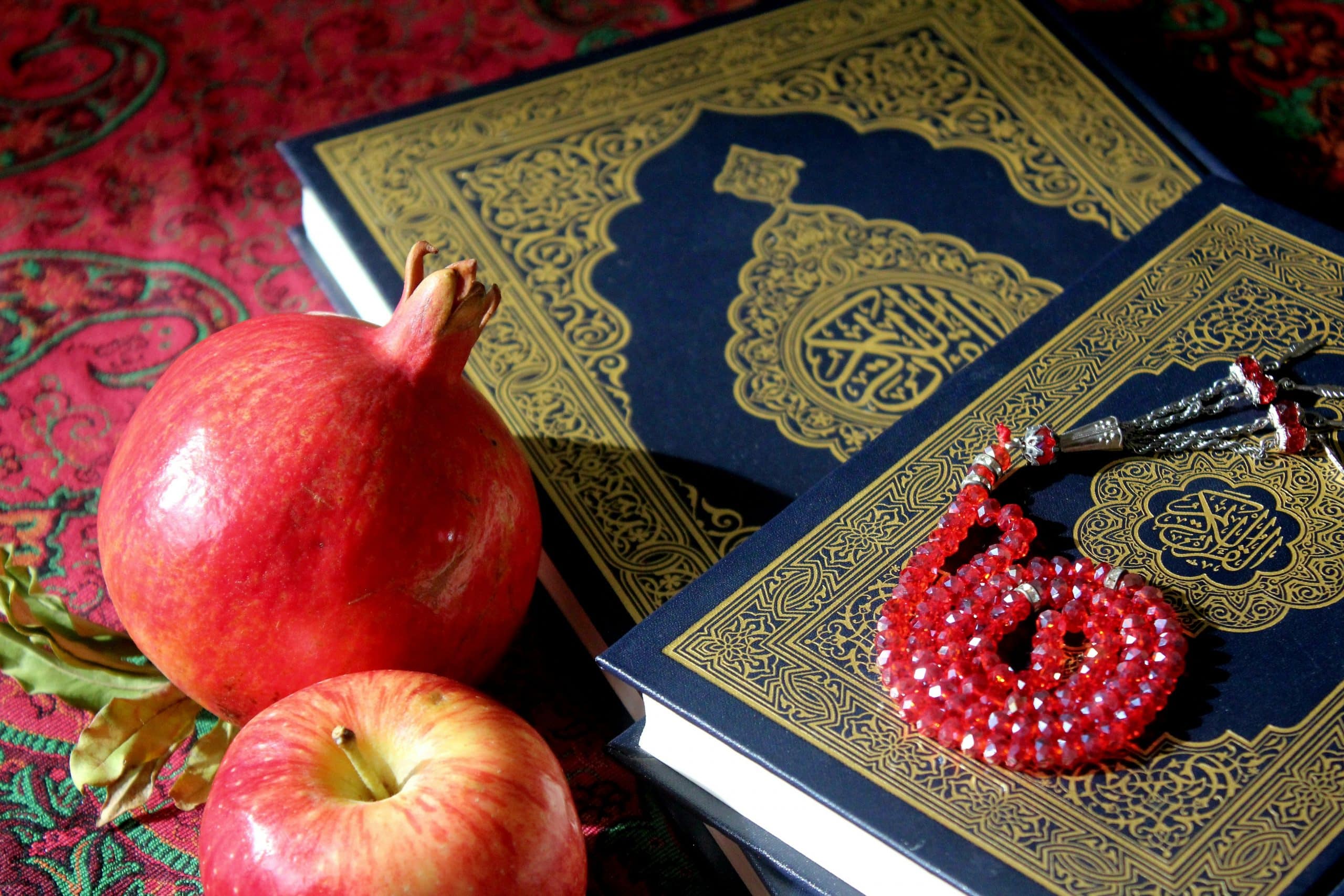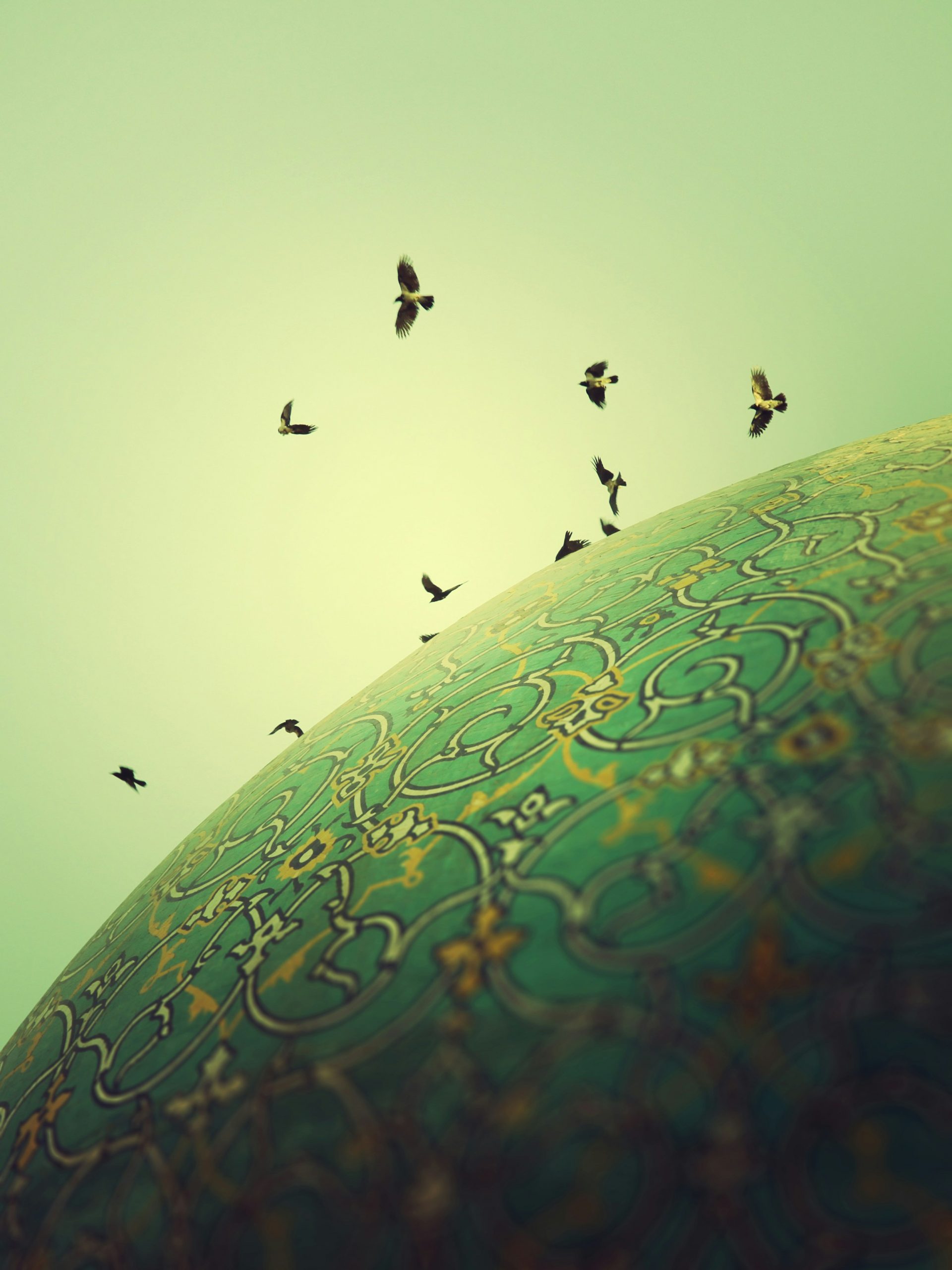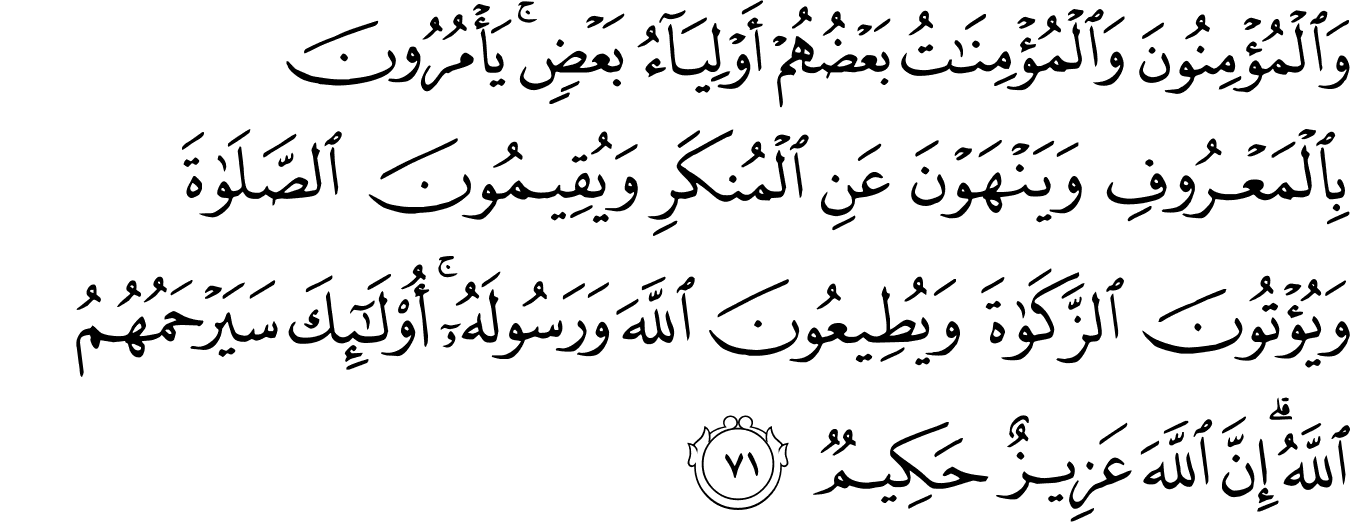#Islam
Reviving Amanah: Trust And Responsibility In An Age Of Western Individualism

Published

We hold the sacred treasures of the dunya within ourselves. The grand wonders, rare gems, and precious natural resources that we see as the riches of the world do not compare to what has been bestowed upon us. Amanah is an invisible yet powerful gift — something we hold, use, and share every day. It’s reflected in how we speak, what we listen to, how we see the world, what we do with our hands, and where we choose to go. Even our breath exists by Allah’s 
The word “Amanah”, like many words in Arabic, holds multiple profound meanings, among which are trust, loyalty, and responsibility. These qualities are intrinsic to every believer—woven into their very being, breathed into their soul.
Keep supporting MuslimMatters for the sake of Allah
Alhamdulillah, we're at over 850 supporters. Help us get to 900 supporters this month. All it takes is a small gift from a reader like you to keep us going, for just $2 / month.
The Prophet (SAW) has taught us the best of deeds are those that done consistently, even if they are small. Click here to support MuslimMatters with a monthly donation of $2 per month. Set it and collect blessings from Allah (swt) for the khayr you're supporting without thinking about it.
“Truly, We did offer the Amanah (trust) to the heavens and the earth, and the mountains, but they declined to bear it and were afraid of it; but man bore it. Verily, he was unjust and ignorant.” [Surah Al-Ahzab; 33:72]
Ibn `Abbas explains in Tafsir al-Qurtubi that this Amanah refers to the responsibilities and obligations that Allah 

As time moves forward, kingdoms are built, conquered, and fall. Though the meaning of Amanah has shifted slightly with each era, its core remains unchanged. History has recorded eras built on collective responsibility; wars fought to protect dignity, societies created to nurture community, and ideas brought forth for the benefit of all. These moments form the tapestry of inherited connection and shared duty, illustrating how individual acts of trust and responsibility woven together can strengthen society.
The Decline of Amanah in Our Communities
In the modern world, however, the gradual but rampant rise of individualism has led many to neglect this divine trust. As Islam continues to grow in the West, uniting hearts and forming new communities, we witness a shift in how faith is practiced compared to traditional societies. Many Muslims have migrated seeking opportunity and freedom, and while some have found both, the challenge of maintaining Islamic values within highly individualistic cultures remains. Traditional societies emphasize collectivism, familial duty, and shared responsibility—values that naturally reinforce Amanah. What may be perceived as intrusive in the West is often seen elsewhere as communal care and commitment.
Yet, after migrating, many face cultural shock not only from the broader society but from within the Muslim community. The realization that fellow Muslims may view you as a burden rather than a source of barakah is deeply painful. Navigating a new culture is already difficult, but without the safety net of communal responsibility, it becomes even harder.
The influence of Western autonomy and self-focus has slowly crept into Muslim communities. Masjids often form social cliques, making newcomers feel alienated. Marriages are restricted to narrow circles. Muslim consumers may bypass Muslim-owned businesses, and some business owners exploit their community, assuming loyalty will justify price hikes. More troubling is the growing disconnect in immigrant communities themselves; by the second generation, the collective spirit their parents knew begins to dwindle. Children raised in the West may not inherit the same bonds of mutual duty, leading to fragmented communities and a decline in the practice of Amanah. In trying to adapt, we risk building communities shaped by cultural convenience rather than Islamic principles.
“The believing men and believing women are allies of one another. They enjoin what is right and forbid what is wrong and establish prayer and give zakah and obey Allah and His Messenger. Those—Allah will have mercy upon them. Indeed, Allah is Exalted in Might and Wise.” [Surah Tawbah, 9:71]

The Prophet [saw] established mu’akhah (brotherhood). [PC: Masjid MABA (unsplash)]
 established between the Muhajirun and the Ansar. When the Prophet
established between the Muhajirun and the Ansar. When the Prophet  and his companions migrated to Madinah, the Muhajirun left behind everything. To ensure their well-being, the Prophet
and his companions migrated to Madinah, the Muhajirun left behind everything. To ensure their well-being, the Prophet  established this bond of brotherhood between them and the Ansar, pairing individuals together. The Ansar embraced the Muhajirun with unparalleled generosity, sharing their homes, wealth, and resources without hesitation, embodying the principle of believers as allies. This brotherhood reflected true Amanah. As seen in Al-Sirah Al-Nabawiyyah, pairings like Bilal
established this bond of brotherhood between them and the Ansar, pairing individuals together. The Ansar embraced the Muhajirun with unparalleled generosity, sharing their homes, wealth, and resources without hesitation, embodying the principle of believers as allies. This brotherhood reflected true Amanah. As seen in Al-Sirah Al-Nabawiyyah, pairings like Bilal  and Abu Ruwayhah
and Abu Ruwayhah  -a former African slave and a renowned Arab poet- shattered societal barriers, proving that Islam is founded on taqwa, not race or status. Such examples are timeless lessons on how to build communities grounded in trust and responsibility.
-a former African slave and a renowned Arab poet- shattered societal barriers, proving that Islam is founded on taqwa, not race or status. Such examples are timeless lessons on how to build communities grounded in trust and responsibility.
The Rise of “Self”-Culture
“Self-made,” “Self-owned,” “Self-sufficient” — Western ideals often idolize self-reliance, but in doing so, they risk idolizing the self above all else. The concept of the self has pandered to the innate greed we all have; one of our fatal flaws. In individualistic societies, the sense of Amanah can sometimes weaken, making it essential for believers to consciously uphold it. In such societies, Amanah becomes optional, not instinctive. Being a resource to others is a burden; hands are rarely extended in fear of responsibility being pressed into them, and contacts are spoken to only when in need of a favor. Clinical networking has replaced friendships, connections made superficially, quickly dropped when their usefulness has expired. In this climate, Amanah is commodified, leading to emotional disconnection not only from community, but from our very purpose.
Amanah also extends beyond human relationships. Our duty to Allah’s 

When we fail to honor our responsibility to the natural world, we risk losing a fundamental part of our humanity: our ability to care, to protect, and to recognize that true progress is measured not by what we build, but by what we preserve. This pattern goes beyond environmental damage; it reflects a deeper moral and spiritual crisis—the gradual erosion of Amanah in our hearts.
The Loss of Amanah
The Prophet Muhammad 
“A man may sleep and Amanah will be taken from his heart, leaving nothing but a trace like a blister left by a coal… Then people will buy and sell, and hardly anyone will be paying attention to Amanah, until it will be said that among such-and-such a tribe there is a trustworthy man.” [Sahih al-Bukhari and Sahih Muslim]

“When we fail to honor our responsibility to the natural world, we risk losing a fundamental part of our humanity.” [PC: Hasan Almasi (unsplash)]
 about the gradual erosion of Amanah warns that trust, honesty, and moral responsibility will slowly fade from society, so much so that finding a truly trustworthy person who upholds all the qualities of a believer with Amanah becomes rare. The hadith further describes how Amanah will be taken from people’s hearts step by step, much like a person sleeping and waking up to find it gone. The Prophet
about the gradual erosion of Amanah warns that trust, honesty, and moral responsibility will slowly fade from society, so much so that finding a truly trustworthy person who upholds all the qualities of a believer with Amanah becomes rare. The hadith further describes how Amanah will be taken from people’s hearts step by step, much like a person sleeping and waking up to find it gone. The Prophet  illustrates this process using the metaphor of a blister left by a burning coal—a painful incident that then leaves a mark that eventually disappears altogether. This warning is deeply connected to the ayah from Surah At-Tawbah and the mu’akhah, reflecting a time when Amanah was central to the early Muslim community, where believers were bound by mutual support, honesty, and moral duty. However, the Prophet
illustrates this process using the metaphor of a blister left by a burning coal—a painful incident that then leaves a mark that eventually disappears altogether. This warning is deeply connected to the ayah from Surah At-Tawbah and the mu’akhah, reflecting a time when Amanah was central to the early Muslim community, where believers were bound by mutual support, honesty, and moral duty. However, the Prophet  warns that over time, Amanah will no longer be a defining trait of society. In commerce, governance, and daily interactions, honesty will gradually erode until trust becomes so rare that a truly trustworthy person is seen as an exception rather than the standard. This warning is for more than just financial dealings—it speaks to a broader decline in moral responsibility, ethical leadership, and the sincerity of human relationships. When trust diminishes, communities weaken, and the very fabric of society is compromised. The Prophet’s
warns that over time, Amanah will no longer be a defining trait of society. In commerce, governance, and daily interactions, honesty will gradually erode until trust becomes so rare that a truly trustworthy person is seen as an exception rather than the standard. This warning is for more than just financial dealings—it speaks to a broader decline in moral responsibility, ethical leadership, and the sincerity of human relationships. When trust diminishes, communities weaken, and the very fabric of society is compromised. The Prophet’s  words serve as a timeless reminder to uphold Amanah in all aspects of life, ensuring that integrity remains the foundation of both personal and collective well-being.
words serve as a timeless reminder to uphold Amanah in all aspects of life, ensuring that integrity remains the foundation of both personal and collective well-being.
The Qur’an further warns:
“So that Allah will punish the hypocrites, men and women, and the idolaters, men and women, while Allah will pardon the believers, men and women. And Allah is Ever Oft-Forgiving, Most Merciful.” [Surah Al-Ahzab 33:73]
Here, neglecting trust is linked to hypocrisy. Upholding it earns Allah’s 

How to Strengthen Amanah
To strengthen Amanah within ourselves, we must commit to living with integrity, accountability, and care in all aspects of life. This includes how we treat others, how we manage our responsibilities, and how we connect with Allah 
- Embrace honesty and integrity.
- Keep promises and speak truthfully.
- Fulfill responsibilities with sincerity.
- Engage in ethical financial conduct.
- Deepen spiritual connection with Allah
.
- Foster inclusive, collaborative communities.
- Support Muslim businesses ethically.
- Protect the environment.
- Teach the next generation about Amanah.
Conclusion
Amanah is a sacred trust that extends beyond our individual relationships to all of Allah’s 
Related:
– Rethinking Work-Life Balance Through The Lens Of Amanah
– Make your Deen Green: Muslims and their Responsibility to the Environment
Keep supporting MuslimMatters for the sake of Allah
Alhamdulillah, we're at over 850 supporters. Help us get to 900 supporters this month. All it takes is a small gift from a reader like you to keep us going, for just $2 / month.
The Prophet (SAW) has taught us the best of deeds are those that done consistently, even if they are small. Click here to support MuslimMatters with a monthly donation of $2 per month. Set it and collect blessings from Allah (swt) for the khayr you're supporting without thinking about it.
Haya Ahmad is a public health graduate and postgraduate medical and research student, also pursuing her Aalamiyah and a Master’s in Physician Associate Studies. She has worked to integrate vital statistics and government health programs into Muslim and refugee communities, advocating for equitable healthcare access. Recognized as one of Georgia’s "20 Under 20 Influential Muslims," she has spoken at major youth events on public health and faith-based initiatives. As a Sunday school teacher and community leader, she is dedicated to bridging the gap between public health and Islamic scholarship.


5 Signs Your Teen is Struggling with Imposter Syndrome | Night 2 with the Qur’an

The Ramadan You Were Written For : Show Up In Every Way Possible

Who Am I Really? What Surat Al-‘Asr Teaches Muslim Teens About Identity | Night 1 with the Qur’an

What Would the Price Have Been for Not Drawing the Line? A Response to Imam Dawud Walid and Zainab bint Younus

Ramadan In The Quiet Moments: The Spiritual Power Of What We Don’t Do

How to Make this Ramadan Epic | Shaykh Muhammad Alshareef

[Podcast] The Parts of Being an Imam They Don’t Warn You About | Sh Mohammad Elshinawy

[Podcast] Guardians of the Tradition: Muslim Women & Islamic Education | Anse Tamara Gray

Op-Ed: Bitterness Prolonged – A Short History Of The Somaliland Dispute

Green March In The Sands Of The Blue Sultan: Morocco And The Conflict Over The Western Sahara

5 Signs Your Teen is Struggling with Imposter Syndrome | Night 2 with the Qur’an

Who Am I Really? What Surat Al-‘Asr Teaches Muslim Teens About Identity | Night 1 with the Qur’an

[Podcast] Guardians of the Tradition: Muslim Women & Islamic Education | Anse Tamara Gray

How to Make this Ramadan Epic | Shaykh Muhammad Alshareef

[Dhul Hijjah Series] Calling Upon the Divine: The Art of Du’a (Part 1)
Trending
-
#Current Affairs1 month ago
[Podcast] Should Muslims Ally with Conservatives or Progressives? | Imam Dawud Walid
-
#Current Affairs1 month ago
Op-Ed: From Pakistan To Gaza – Why Senator Mushtaq Ahmad Khan Terrifies Power And Zionism
-
#Islam3 weeks ago
How to Make this Ramadan Epic | Shaykh Muhammad Alshareef
-
#Life3 weeks ago
[Podcast] The Parts of Being an Imam They Don’t Warn You About | Sh Mohammad Elshinawy













Ayaan
May 23, 2025 at 11:47 PM
Very profound and eye opening article! سُـبْحانَ الله